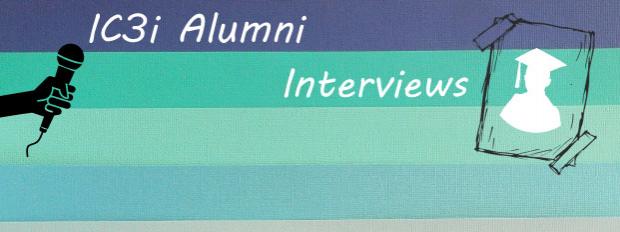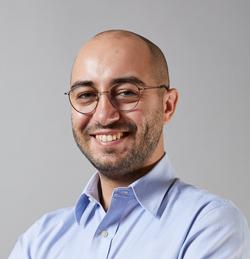Jacopo, would you like to tell us what you were doing before joining Institut Curie?
Before joining Institut Curie I did my undergrad in molecular biology in Padua and my Master in medical biotechnology in Bologna. During my Master, I discovered a program called Erasmus+ that gave me the opportunity to do a short internship in a laboratory outside Italy. Since I was hesitating whether to do a PhD or not, I decided to take the opportunity to do so some research and see if I could be interested in it. That is when I found out Alexandre Baffet’s laboratory (Cell Biology of Mammalian Neurogenesis, UMR144) where they were doing research in neural development and neural stem cells. In the meantime, I decided to apply for the IC3I program. I had the opportunity to obtain the position and I started officially my PhD in October 2016.
Why did you choose to come to Paris?
I would say that in Europe, at least in biology, Paris is the most important place to do science.
What difficulties did you encounter when you arrived?
The relationship with the university and doctoral school was complicated because they were expecting us to do everything in French. Ok yes, I get it…we are in France and I am Italian and I can (and I could at the moment) kind of understand French but for other people who came from different countries like China, India or Russia, it was really hard.
Besides, it was never clear for us which one was our doctoral school so that made things complicated for us at the beginning…
And during your PhD, can you make a brief summary of what you were doing?
I did a fourth-year PhD, the first three with the IC3I PhD program plus one with the FRM scholarship to complete it. As I said before, I worked in brain development and I used a very interesting mouse model to study this process. It consisted in studying the function of a certain protein that if deleted, caused - in the best-case scenario - microcephaly in the brain.
It was an interdisciplinary project. I have to say that it is here that I realised how good was Institut Curie in doing high-quality science. I used the microscopes of the Nikon imaging facility a lot and without them it could have been impossible (or not as easy) to conduct the project. Regarding consumables, we had accessibility to many things, it was very fast to access to them. And in the very rare cases where the delivery was not so fast there was always somebody in the institute willing to lend us some. Same goes for the doubts and discussions, if my boss was not there and I needed help from no matter who, there was always somebody willing to help me. Networking is very important in science and Institut Curie is a very good place for this.
What did you do after your PhD?
Before finishing my PhD I started to think about what I wanted to do and I knew I didn’t want to continue in academia. Sometimes I think it is difficult to find something because they teach you the normal road is undergrad, master, PhD, post-doc and professor but they don’t tell you exactly how to get out of the loop after you finish your PhD or post-doc. So I started to send CVs before finishing and the most common answer I received was that I was overqualified. So, I decided to explore the world of clinical research, that I liked a lot and got in quite easily.
Was it frustrating to have those answers?
Well, at the beginning yes. But now I have a job where I am appreciated for having my PhD, especially for the skills I have learned while doing it.
You told me before the interview something about a Master degree after your PhD right?
Yes, after my PhD I did a Master in clinical research in France. While doing that we had a recruitment day, where I got in touch with my actual company where I was appreciated for my skills, the languages I speak, etc, etc. Luckily I got a permanent position with the possibility to return to Italy. Basically what I am doing is I am monitoring clinical trials in UK, Italy, France and Switzerland for the company. I am the link between the company and the doctors and researchers that carry the clinical trials in the hospital.
If you had the chance to meet a new Jacopo arriving to the lab today, what would you tell him?
Try to be patient, not only with the experiments but also with people. As well, I would say people need to create their own space outside the lab (N.B.: a recurrent comment among PhD students). It is important to be dedicated to your project, but if you don’t relax and make time for yourself, you will be exhausted and it will drain you out. But most importantly, try to enjoy it, it can be exhausting, it can be frustrating but nowadays I see the results of the effort and that satisfies me.


